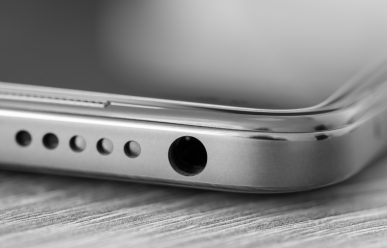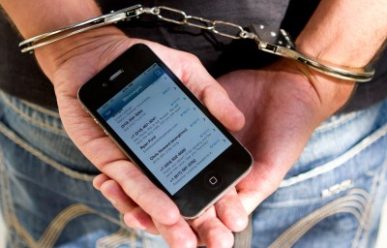The Duke of She told Confucius: “Among the upright men of my home, if the father steal a sheep his son will bear witness.”
Confucius answered: “Our people’s uprightness is unlike that. The father screens his son, the son screens his father. There is uprightness in this.”[i]
According to Confucius, a son should not be made to testify as to the crimes of his father. Morality considerations aside, the Fourth Circuit disagrees. On June 16, 2014, the federal appellate court in Richmond refused to recognize a parent-child testimonial privilege in Under Seal v. United States, where the government subpoenaed 19-year-old Doe Jr. to testify against his father, Mr. Doe, in a grand jury investigation regarding an unlawful possession of firearms charge against the father.[ii]
On November 20, 2012, officers from Harford County, Maryland responded to a 911 domestic assault complaint by Doe Jr.’s mother (Mrs. Doe). At the time, the Doe house was occupied by 18-year-old Doe Jr., his parents, and his two minor siblings. A search of the residence revealed approximately 40 assorted firearms, “including two assault-style rifles, a WWII-style pistol, a leaded semi-automatic handgun, and an AK-47 assault rifle” as well as “marijuana plants growing in five-gallon buckets and drug paraphernalia” in the basement.[iii]
Mrs. Doe eventually dropped the domestic abuse charges against Mr. Doe, and the government later referred the case to grand jury investigation for a potential charge pursuant to 26 U.S.C. § 5861(d).[iv] Doe Jr. was subpoenaed “to determine the ownership of the illegal guns” found in the home. In his motion to quash, Doe Jr. contended that compelling his testimony to “solidify a criminal case against [his] father” would cause incalculable “damage to the father-son relationship.”[v]
At the district court hearing on the motion to quash, Doe Jr. testified that although his father would not cut him off financially, and “would not hold it against” him for testifying, “he had significant anxiety about testifying against his father and provided doctors’ notes to the that effect.[vi] The government argued that Doe Jr.’s testimony was necessary to “fully explore all the evidence in this case to do a complete and thorough investigation,” because Mrs. Doe had invoked her spousal privilege, and the two minor Doe children would not be called as witnesses.[vii] Ruling from the bench, the district court agreed with Doe Jr. and explained that while the government had an interest in pursuing its investigation; it did not trump the individual privacy interests stemming from Doe Jr.’s relationship with his father.[viii]
The Fourth Circuit reversed on appeal, and in a unanimous opinion, declined to find a parent-child privilege. In support of its conclusion, it observed that in contrast to the “very small handful of federal district courts” that have recognized the privilege, “every federal appellate court that has considered adoption of the parent-child privilege – include our own – has rejected it.”[ix] In particular, the court discussed two previous Fourth Circuit cases that also declined to adopt a parent-child privilege.
In United States v. Jones,[x] the Court held that no privilege existed where testimony would be limited to questions unrelated to his familial association with his parent, because a 29-year-old man was “not an impressionable young child.”[xi] The Court recognized, but did not address the possibility that the privileged may be recognized in cases with “changed factual circumstances” in which other considerations such as the age and emancipation status of the child may come into play.[xii]
In United States v. Dunford,[xiii] the father of two minor daughters was convicted of numerous counts of illegal possession of firearms and ammunition. The Fourth Circuit there refused to recognize the privilege and compelled the daughters to testify at their father’s trial because he had abused them and endangered them with illegal firearms. The court, nevertheless, left room for the possibility of adopting the privileges in certain circumstances where the intangible and tangible benefits of preserving the family unit would outweigh the government’s interest in compelling the child to testify.[xiv] As a corollary, the Court cautioned, “even if such a privileged were to be recognized it would have to be narrowly defined and would have obvious limits, perhaps such as where the family fractures itself or the child waives the privilege or where ongoing criminal activity would be shielded by assertion of the privilege.”[xv]
The Fourth Circuit held that the facts in Under Seal did not warrant application of the privilege because Doe Jr. was an adult college student who had truthfully testified that his father would not “cut him off” financially or “hold it against him” for testifying.[xvi] Furthermore, because Doe Jr. was the only individual in the Doe household who was available to testify, applying the privilege would undermine the U.S. Supreme Court’s admonishment that only limited exceptions should trump “the normally predominant principle of utilizing all rational means for ascertaining the truth.”[xvii] Thus, Doe Jr. did not provide a “strong showing that adoption of the parent-child privilege would promote sufficiently important interests to outweigh the need for probative evidence in the administration of criminal justice.”[xviii]
Interestingly, Under Seal does not represent a categorical rejection of the possibility of the parent-child privilege ever being recognized in the jurisdiction. The Court in Jones and Dunford had “declined to recognize a parent-child privilege, but stopped short of issuing a blanket rejection of the privilege.”[xix] The Fourth Circuit, again, in Under Seal left the door slightly cracked to the future possibility that, with the right facts, the privilege might be revived. It concluded that the “strong showing of need” for justifying the creation of a new privilege was simply not met in the circumstances of Doe Jr.’s case. Nevertheless, Under Seal adds to the strong weight of Fourth Circuit case law against the parent-child testimonial privilege, and absent legislation, there is unlikely to be a case in the near future that presents sufficient factual circumstances to warrant its recognition.
* * *
[i]Confucius, Analects, available at: http://www.bartleby.com/44/1/13.html.
[ii] Under Seal v. United States, 13-4933, 2014 WL 2699722 (4th Cir. June 16, 2014).
[iii] Id. at *1.
[iv]26 U.S.C. § 5861 (West) (Providing that it is unlawful for any person “to receive or possess a firearm which is not registered to him in the National Firearms Registration and Transfer Record”).
[v] 2014 WL 2699722, at *1.
[vi] Id. at *2.
[vii] The opinion by the Court merely states that the “government did not intend to call the two minor Doe children as witnesses”, but provides no further explanation for the basis of the Government’s decision not to do so.
[viii] 2014 WL 2699722, at *2.
[ix] Id. at *3.
[x] United States v. Jones, 683 F.2d 817 (4th Cir. 1982).
[xi] Id. at 819.
[xii] Id.
[xiii] United States v. Dunford, 148 F.3d 385 (4th Cir. 1998).
[xiv] Id. at 391.
[xv] Id.
[xvi] 2014 WL 2699722, at *6.
[xvii] Id.
[xviii] Id. at *7.
[xix] Id. at *5.



